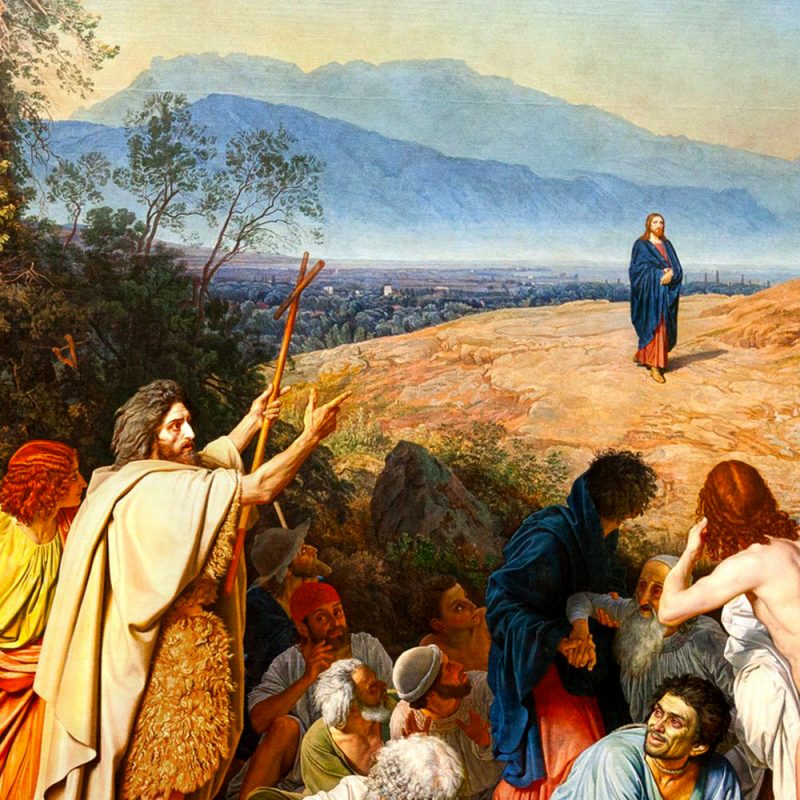Fr Paolo Consonni, MCCJ
ADVENT 3rd Sunday YEAR A
There are moments in life when we would like to have answers and certainties, especially in the midst of serious circumstances when everything is at stake, when we face difficulties and pain, because in those moments, doubts grow stronger.
In the Gospel of this third Sunday of Advent (Mt 11:2-11), we find John the Baptist in prison, awaiting his fate. He helped the people of Israel to prepare for the coming of the Messiah, but got into trouble by denouncing the injustices and the corruption of both the political and religious institutions.
In the last part of his life, he invested everything in Jesus, in spite of the differences in their lifestyles and about the content of their proclamation. John lived in the desert; Jesus mingled with people. John underlined penance, Jesus spoke of mercy and compassion. Facing execution, John felt the need to look for some answers.
“Are you the one who is to come, or should we look for another?” John’s question to Jesus was not posed merely to clarify a religious belief. The issue was much more personal: “Was all my life of sacrifice and toil worthwhile? Did I make the right choice to put you ahead of me? Do these sufferings have meaning, or did I fail in my mission?”
Jesus’ answer is about reality more than ideas: “Go and tell John what you hear and see: the blind regain their sight, the lame walk, lepers are cleansed, the deaf hear, the dead are raised, and the poor have the good news proclaimed to them”. Jesus’ words and actions, His very presence, brought new life and hope when everyone saw only anguish and despair.
Our faith awakens when our heart feels the connection between God’s self-revelation and our concrete reality. The Mystery of Incarnation allows us to see this connection possible in all the circumstances of human life, even in death. There is no other way to describe this connection than a relationship, a “someone” whose presence makes everything meaningful. A presence that unites all the scattered events of our life —even our failures and sins— into a unified history of Grace. Those who met Jesus with an open heart felt that God Himself had touched their life, especially their darkest part.
Sometimes, we might have doubts regarding the importance of His presence, like John. Sometimes we might even deny our relationship with Him, like Peter. But our heart knows well, experientially, that without Him, nothing makes sense.
Advent is an invitation to see the power of His presence at work even here and now, especially through the loving example of His witness, the Church. John was the first one to confirm with his blood what his heart had always known since he was in his mother’s womb: Jesus is the Emmanuel, God among us. In John’s heart, objective reality (the signs) and inner conviction at the end coincided, and this gave him the strength to gladly offer his life to Jesus in gratitude.
But we need to be aware that signs performed by Jesus, though objective, are not proofs in themselves: only whose who have faith can read them. Jesus, in fact, concludes by saying: “Blessed is the one who takes no offense at me”. Those who expect Jesus to be a Messiah who comes to solve all of our problems, or escape life challenges, will be utterly disappointed, “offended” by Jesus. The Catechism clearly explains that miracles “are not intended to satisfy people’s curiosity or desire for magic. Despite his evident miracles, some people still rejected Jesus; he is even accused of acting by the power of demons (CCC 548). “By freeing some individuals from the earthly evils of hunger, injustice, illness and death, Jesus performed messianic signs. Nevertheless, he did not come to abolish all evils here below, but to free men from the gravest slavery, sin, which thwarts them in their vocation as God’s sons and causes all forms of human bondage” (CCC 549).
This is the leap of faith that we, together with John, are invited to make during Advent: to believe that God’s Plan of Salvation is not hindered by the forces of evil we see all around us and even within us. When, in union with Jesus, we offer our daily actions so that our lives might also be part of this Plan, then everything acquires a deeper meaning, a meaning of love. Whether we are in a prison cell or in a hospital room, in a classroom or in an office, what our hearts mostly desire is the assurance that we are not left alone in facing life challenges, and that His presence makes this offering worth the effort. A reason to rejoice, in this Gaudete Sunday!


 Follow
Follow


